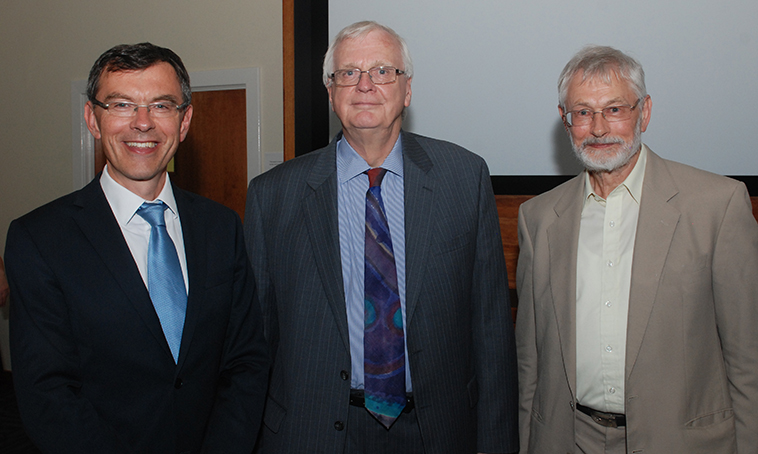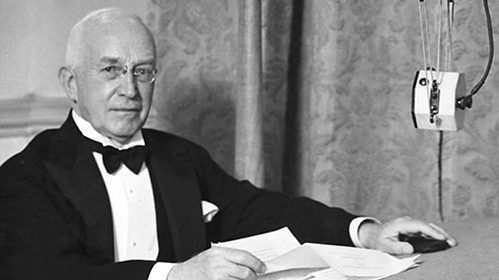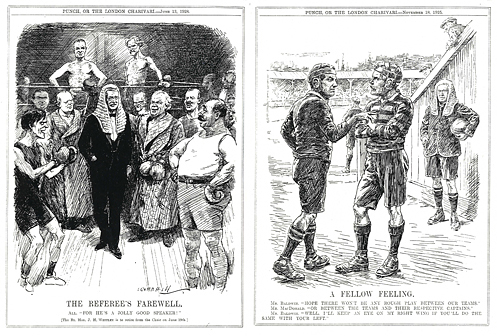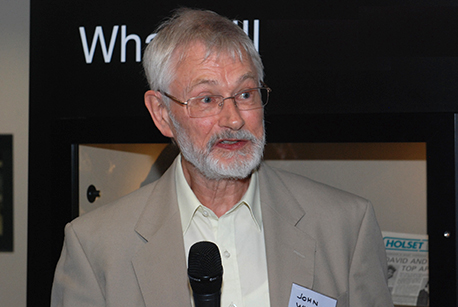Sir Alistair Graham delivers the annual J.H. Whitley Lecture
 Pictured (l-r) is the University's Professor Tim Thornton with guest speaker Sir Alistair Graham and Mr John Whitley.
Pictured (l-r) is the University's Professor Tim Thornton with guest speaker Sir Alistair Graham and Mr John Whitley.
Fri, 23 Sep 2016 13:16:00 BST
“Whitleyism” and the future of the Trade Unions
 ◄ Speaker J.H. Whitley
◄ Speaker J.H. Whitley
PROMINENT 20th Century politician John Henry Whitley is remembered for his stint as Speaker of the House of Commons in the turbulent 1920s. But another claim to fame – the creation of a new style of industrial relations – meant that his name became the basis for a word, “Whitleyism”. The Oxford English Dictionary defines it as “the use of Whitley Councils or similar methods for dealing with relations between employers and employees”.
The University of Huddersfield, which houses the J.H. Whitley Archive, is the setting for an annual public lecture commemorating the politician, who was Liberal MP for his hometown of Halifax between 1900 and 1928 and Speaker from 1921-1928.
Past lectures have been delivered by leading historians and politicians, including current Commons Speaker John Bercow. The 2016 edition was titled Have Trade Unions a Future? and given by Sir Alistair Graham, whose varied career in public service included two decades as an official and eventually general secretary of a large civil service union, the Civil and Public Services Association (CPSA).
He furnished figures that illustrated the steep contemporary decline in union membership and provided a range of reasons for this.
“Trade unions are in a harsh environment, but they have shown a flexibility and tenaciousness that should ensure their long-term survival,” said Sir Alistair, who was in no doubt that “the balance of power between workers and employers has tilted too far in favour of employers”.
 “I believe trades unions play a vital role in civil society. They are needed and I hope they will prosper in years to come,” he added, before condemning the 2016 Trade Union Act, which, he stated, is “deliberately designed to undermine trade unions and their support for the Labour Party, together with their scope for organising industrial action, without a shred of evidence to justify such changes.
“I believe trades unions play a vital role in civil society. They are needed and I hope they will prosper in years to come,” he added, before condemning the 2016 Trade Union Act, which, he stated, is “deliberately designed to undermine trade unions and their support for the Labour Party, together with their scope for organising industrial action, without a shred of evidence to justify such changes.
“In my view this legislation is political viciousness of the worst sort.”
Sir Alistair’s lecture began with an outline of the history of Whitleyism and its origins in a report compiled in 1917 by J.H. Whitley.
“It was urged on employers and workpeople alike as a basis for reorganisation of industry. Many people hailed Whitleyism as a saviour from industrial anarchy on the one hand and from socialism on the other,” said Sir Alistair.
The new system of consultation and negotiation did not take root in the private sector, but did become embedded in the Civil Service and Sir Alistair told his audience at the University’s Sir George Buckley Lecture Theatre that for years, his working life was dominated by Whitleyism.
But this was also the period, he added, when Whitleyism “ceased to be a process for fostering good industrial relations in the public service”.
The end came, he said, when the Government of Prime Minister Margaret Thatcher withdrew from a long-established, system of pay negotiation in the civil service. This led to a 1981 strike, eventually lost by the union.
“But even during that difficult period, the feeling was that we should keep communication and discussion open,” said Sir Alistair, who told how in the spirit of Whitleyism, leaders and senior civil service officials had informal walks around the duck pond in St James’s Park, in order to keep communications open.
 “To this day – and I’m a member of it – there is a luncheon club for retired senior civil servants and ex-civil service trade union leaders that meets once a quarter. It is called The Owls – which stands for Old Whitley Lags.”
“To this day – and I’m a member of it – there is a luncheon club for retired senior civil servants and ex-civil service trade union leaders that meets once a quarter. It is called The Owls – which stands for Old Whitley Lags.”
Sir Alistair said that he had first became involved in Whitleyism in 1966, when he became national officer of the CPSA.
“In my view Whitleyism did foster a shared management and staff approach to the public service. Alongside strong trade unionism in the civil service, from the 1920s it produced crucial developments such as equal pay for female and male civil servants – which was a radical step – and it produced ground-breaking civil service pension scheme.”
The J.H. Whitley Archive is kept at the University of Huddersfield’s award-winning Heritage Quay. It was deposited at the University by the former Speaker’s grandson, Mr John Whitley (pictured left). When he introduced the 2016 lecture he said that “it is five years ago that we deposited the papers here and with the passing of each year we are more convinced that we did the right thing.” The archives were being used by increasing numbers of researchers, including students, he added
The annual lectures are organised by the History Department at the University of Huddersfield and Professor Paul Ward – Head of the Department of History, English, Languages and Media – presided over the wide-ranging question-and-answer session with Sir Alistair that followed his address.







